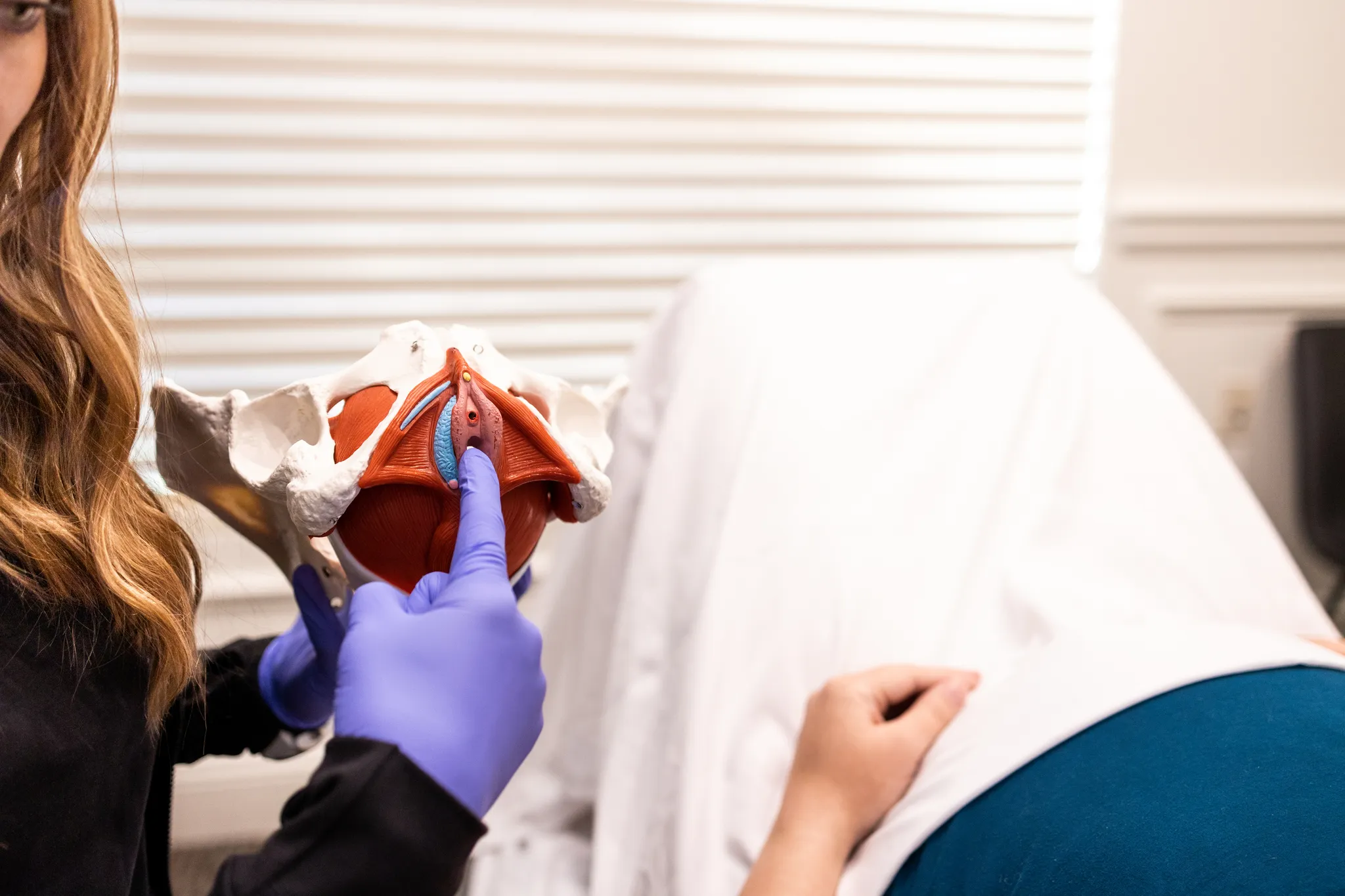Bowel and Bladder Dysfunction in Utah

Incontinence
Incontinence is the loss of bladder control. Incontinence can be as simple as leaking urine from coughing to severe cases where you feel the urge to urinate and can end up not getting to the toilet in time. Incontinence treatment may be able to reduce the frequency and severity of your symptoms. This can be done by strengthening your pelvic floor muscles. Incontinence can be caused by a weak pelvic floor, tightness, and uncontrolled spasming.
Prolapse in Lehi and Layton
POP (pelvic organ prolapse) refers to the prolapse of the pelvic organs via the perineum. This is caused by weak pelvic floor muscles and support structures. It will take time to build strength, physical therapy is the perfect place to do that. Physical therapy can be very effective for many women. Physical therapy can reduce symptoms and prevent the condition from getting worse. It may even be a better option than surgery. Book an appointment with Reborn Pelvic Health & Wellness to learn more about prolapse risk, the symptoms to look out for, and what treatment options are available. We are happy to help you with any questions that may arise in your particular situation.
We offer treatments for other conditions or issues including:
- Urgency/Frequency
- Incomplete Emptying
- Constipation
- Retention
- Hemorrhoids
Constipation
Constipation is any dissatisfaction with your bowel movements. It can be a lack of bowel movement, infrequent bowel movements, or difficulty passing stool. To help with constipation, pelvic floor physical therapy uses manual techniques, exercise programs, and diet and activity modifications. Connective tissue manipulation is a technique that releases connective tissue restrictions from the pelvic muscles. This includes the abdominals, inner thighs, groins, buttocks, low back, and groin. Manual release of the pelvic floor muscles (specifically puborectalis), relaxation exercises, and pelvic floor exercises are used to relieve tightness. These exercises help strengthen and restore optimal function. Lifestyle modifications, such as changing your diet and water intake, may also be recommended to help with constipation.
Hemorrhoids in Provo and Murray
Hemorrhoids are swollen veins located in the anus or lower rectum. Although hemorrhoids usually resolve in a few days, they can still be uncomfortable and distressing. Chronic constipation and straining of bowel movements are risk factors. A pelvic health physical therapist can assess your pelvic floor tension to determine the cause of your hemorrhoids and provide individualized treatment to reduce constipation, improve your breathing, and improve bowel movement mechanics.
Urinary Urgency/Frequency
Urinary Urgency/Frequency is the frequency with which you urinate, whether it be during the day or at night (nocturia), either in normal or lower volumes. Frequency can be accompanied by a feeling of urgency to void (urinary urge). Your physical therapist will conduct an examination to determine the cause of your Urinary Frequency or Urgency and also determine if you need to be referred for further tests. Your physical therapist will tailor treatments to strengthen and improve the function of your pelvic floor muscles and muscles based on your evaluation. Your physical therapist will help you manage your symptoms, reduce the need to wear pads, special undergarments, or incontinence medication, and avoid surgery.
Improving Bladder and Bowel Control
Bladder and bowel issues can be frustrating, but they’re often linked to pelvic floor muscle coordination and can improve significantly with targeted therapy. We treat urinary incontinence, urgency, frequency, retention, and painful bladder conditions such as interstitial cystitis. Our approach also helps with constipation, fecal incontinence, and anorectal pain, focusing on retraining the muscles that control elimination. By improving relaxation, timing, and strength of the pelvic floor, patients often regain comfort and confidence in their daily routines.
Next Steps: Get Started with us Today
Ready to take control of your pelvic health? Contact us today to schedule your first session. Our friendly team is here to guide you every step of the way.


